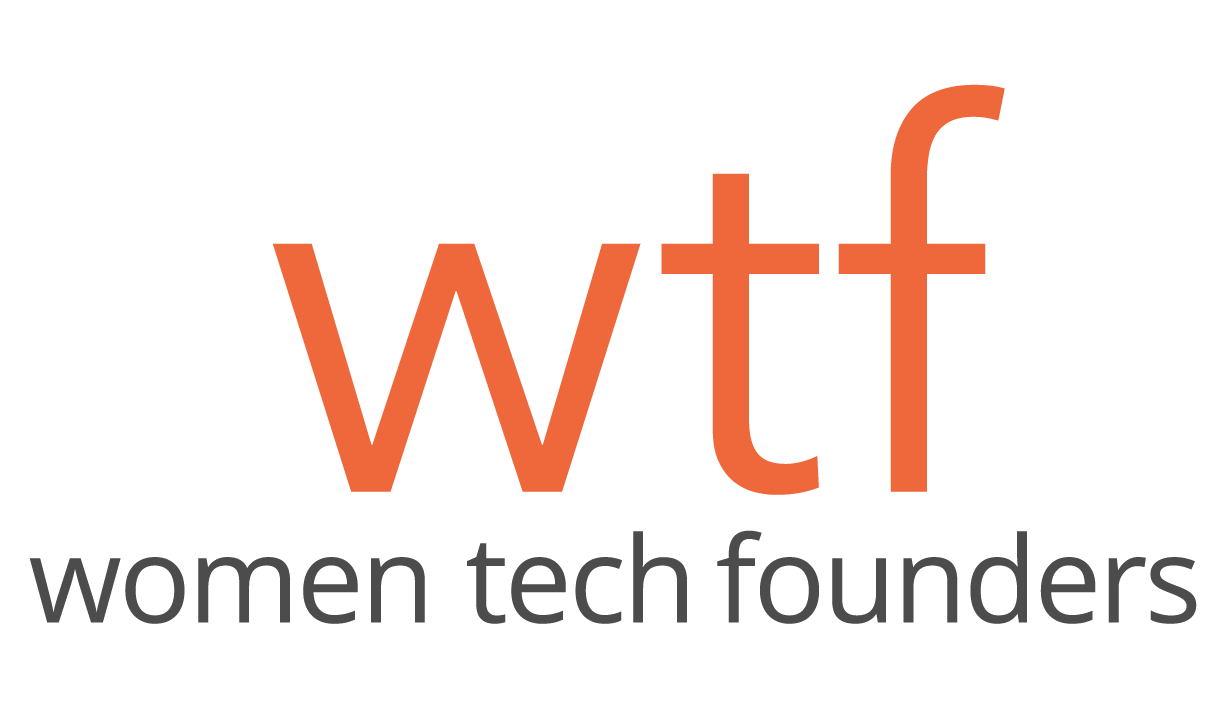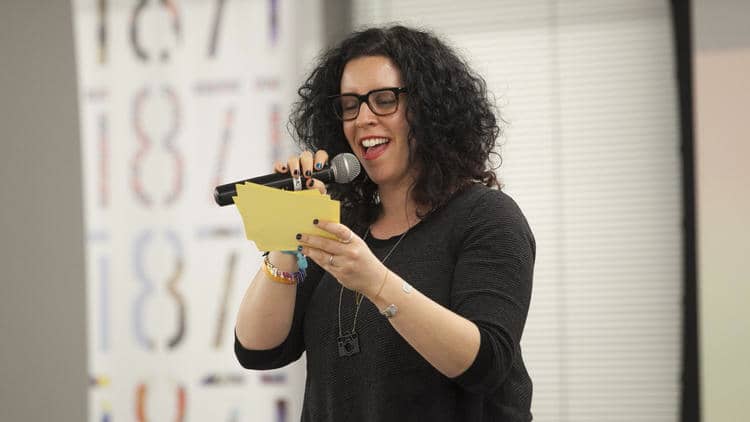Women Tech Founders take the stage to inspire careers in technology
By Amina Elahi
Blue Sky Reporter
Why Women Tech Founders, without funding, sped to get started
A diverse group of women packed the room and stage Tuesday night at 1871 as Women Tech Founders shined a light on female entrepreneurs’ stories.
It was the inaugural event for the group — fondly called “WTF” by participants — which came together in December following conversations about a change in course for 1871’s own women-focused program, WiSTEM. The goal for Tuesday night was to inspire young women to enter and stay in the pipeline for technology careers.
Some 200 attended, including groups of college students from area institutions and more than a handful of men. The speakers varied in age, ethnicity and industry. And Brenna Berman, Chicago’s chief information officer, watched the proceedings from a quiet spot in the back of the room.
“We’re women led and we’re men-supported,” said WTF creator and TeacherCare founder and CEO Terri Brax, echoing actress Emma Watson’s recent #HeForShe campaign.
Brax co-founded WTF with Sharon Schneider, founder and CEO of MoxieJean; Riana Lynn, founder of FoodTrace; and Bradley LaRocco, a local filmmaker helping the group share women founders’ stories with video.
After attendees networked and snacked on pizza and flavored San Pellegrino — a slight change from the usual pizza and beer — 10 female founders took to the stage, lightning-style. Each briefly shared her journey and some offered a tidbit of advice before introducing the next speaker.
Stacy Ratner, founder of Open Books and Hooray Learning, spoke about her experience with a failed business and the change that sparked in her.
“I had one of those moments where you think … ‘What is it that I want the world to have been because I was in it?’” Ratner said. That question, she said, led her to identify her passion for literacy and set her down her current path.
ZipFit founder Liz Tilatti advised attendees: “Before you start a venture, think about it a little bit.” Before jumping on an idea, she said, entrepreneurs should identify their passions and evaluate business opportunities.
A brief question-and-answer session followed the founder parade, during which audience members asked about the value of business plans, how to brand and market themselves, where to get seed financing and whether it’s necessary to learn to code.
A number of attendees said they enjoyed the women’s stories but wished for more useful or practical takeaways. WE Design Think founder Karen Gordon, one of the speakers, said WTF would be compiling resources for participants based on feedback.
Ellie Day, a 20-year-old freelance developer who asked about branding, said the networking and insights offered at WTF were helpful but that she still has many questions.
“Okay, so I’ve been inspired, what do I do next?” Day told Blue Sky after the event. “People go from I started a business, now I’m successful on stage, I raised a million dollars. They leave out a lot of the details.”
Day said she values sharing experiences and mentorship. She hopes to offer an affordable tutoring program for women who want to code through her organization, Women Of Code.
Organizers said WTF plans to host two events per college semester, with the possibility of future topic-specific events. Brax said she would love to feature female technical founders and coders as speakers.
WTF is independent and intends to stay that way, Brax said. The unfunded organization is on its way to becoming a 501(c)3 non-profit. Brax said the bootstrapped WTF has benefited from in-kind support from sponsors including Ms. Tech and Meyer Law.
Brax said WTF would like to work with other organizations, including 1871’s WiSTEM, which may launch this spring. But WTF’s founders didn’t want to wait for other programs to take off before taking action.
“It had to happen,” Brax told Blue Sky after the event. “It was that thing about you can’t sleep because you know you just have to do this thing.”
Copyright © 2015, Chicago Tribune

